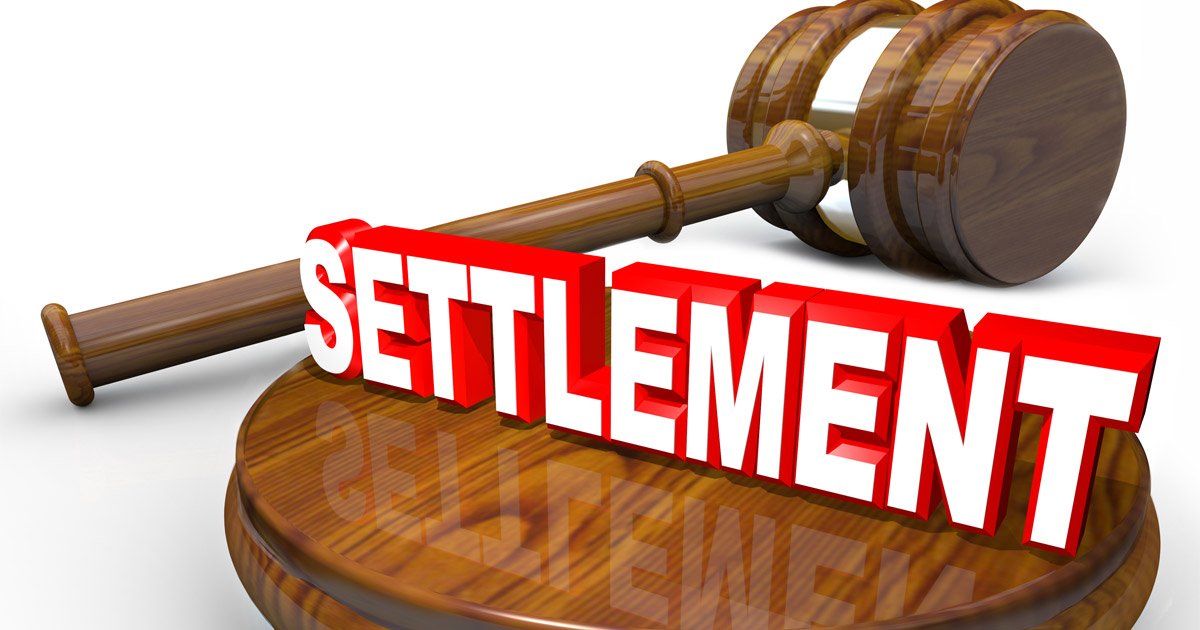Most car accident cases never end up going to trial. The claims are settled out of court between the insurance companies of the plaintiff and the defendant. However, it is still important to get legal representation after a car accident. A car accident lawyer will prepare for each case for trial regardless.
When an insurer refuses to be reasonable in the negotiating process, there is no choice but to bring the case to court for settlement within the statute of limitations time period. In Virginia, that is two years for personal injury and wrongful death cases and five years for property damage cases. Even if a case is brought to court, it may take many months or years for a trial to occur. During that time period, negotiations can continue, and the plaintiff can settle at any time with the insurer. More evidence may even come to light during this period.
Once a lawyer formally files a lawsuit, an insurer may be more likely to settle for an amount closer to the victim’s demands. They may not want to risk a larger settlement from a judge and jury. The victim, too, may not want to wait for a trial or may need settlement money to cover their losses. The decision to go to trial or accept an offer lies with the plaintiff. They need to review their physical, financial, and emotional circumstances and decide if it is better to take an insurer’s offer or if they should go to court.
The plaintiff should also consider their lawyer’s track record in winning court cases and their overall experience in the courtroom. They should have a discussion with their lawyer about the advantages and disadvantages of going to court and their risk. It is important to note that Virginia follows a contributory negligence rule. That means if the plaintiff is found to have played even the slightest role in causing the accident, they likely cannot recover compensation from the other driver.
This contributory negligence rule adds a new dimension to negotiations and court cases. For example, an insurance negotiator may challenge the claim if they suspect a jury would find the plaintiff even slightly liable for the accident. However, this rule should not prevent anyone from going to trial to collect the damages they are entitled to as the victim of a car accident.
How Does a Car Accident Lawsuit Work?
Understanding what leads to a court trial or an out-of-court settlement is essential for anyone considering a car accident lawsuit. The first step is for the plaintiff to choose a car accident lawyer to represent them. They should select a lawyer or firm specializing in personal injury and car accident lawsuits. The sooner the lawyer is on board, the better. That way, they can work quickly to preserve evidence and prepare for a potential court trial. The lawyer will work with their client to begin collecting evidence, including:
- Police reports, videos, photographs, and diagrams.
- The victim’s own evidence, which could include on-scene photographs and videos.
- Witness statements.
- Medical records, including diagnoses, prognoses, doctor and other medical provider notes.
- Cost receipts, including those for the ambulance, emergency room services, intensive care services, surgeries, therapies, medications, and medical equipment.
- At-home medical care.
- Cost of hiring needed nonmedical help in the home.
- Employment records, such as time off because of the accident.
- Property damage estimates.
- Estimates of financial loss, including financial advantage.
- Estimates of costs for future medical care.
- Expert testimonies, such as professionals who reconstruct accidents.
Meanwhile, the at-fault driver’s insurance company will be investigating as well. Their investigator will also gather evidence, talk to witnesses, and review the victim’s evidence to prepare their defense and estimate how much they think the case is worth.
Once the victim’s lawyer has enough evidence and an accurate estimate of current and future damages, they will demand a formal settlement from the at-fault driver’s insurance company. After this, the negotiations begin.
How Do Negotiations Work?
Insurance companies do their best to make money. They will rarely accept the demand amount and will offer the least amount they can. Insurance companies have a duty to negotiate in good faith. However, that does not always happen. They can deny a claim or offer a low settlement. They may insinuate that the victim exaggerated their losses or that their client was not totally liable for the accident. A skilled lawyer can almost always negotiate a fair and just settlement for the victim.
What Happens in a Car Accident Trial?
If a car accident claim ends up going to trial in Virginia, the following steps will likely occur:
- The victim’s lawyer files a complaint with the at-fault driver and their insurance company and lawyer.
- The defendant is required to answer the complaint. The answer may be that the accusation is false or something else.
- A period of discovery then begins with both parties asking questions of each other and reviewing evidence.
There may be depositions, motions, legal arguments, witnesses, and testimonies during this discovery period. The primary focus will be on liability. There will also be a strong focus on the extent of injuries and damages and how they are linked to the liable party.
During discovery, the case can be settled between the two parties or go to mediation or arbitration for settlement. If none of these actions occur, the case will go to court. The plaintiff will have either a jury trial or a bench trial, meaning the case will be presented to a judge rather than a jury. In Virginia, cases that originate in a general district court are bench trials. A plaintiff can choose a bench trial or jury trial in cases that originate in a circuit court. A victim should discuss the differences with their car accident lawyer.
In a trial, the plaintiff carries the burden of proof. They will always present first in a trial with evidence and opening and closing statements. The trial’s length will depend on the amount of evidence, number of witnesses, number of defendants, and the case’s overall complexity. A judge or jury decides on the case and the award. For help with a case, a car accident victim should speak to a lawyer as soon as possible.
Virginia Beach Car Accident Lawyers Help Collision Victims Prepare for Court
A car accident victim has the right to expect a settlement that covers all of their losses. A Virginia Beach car accident lawyer will collect solid evidence and negotiate on your behalf. At East Coast Trial Lawyers, we help various accident victims with complex personal injury cases. Call us at 757-352-2237 or contact us online for a free consultation and more information about your case. Located in Virginia Beach, Virginia, we serve clients throughout Chesapeake, Eastern Shore, Hampton, Newport News, Norfolk, Portsmouth, and Suffolk, Virginia, as well as North Carolina and nationwide.


